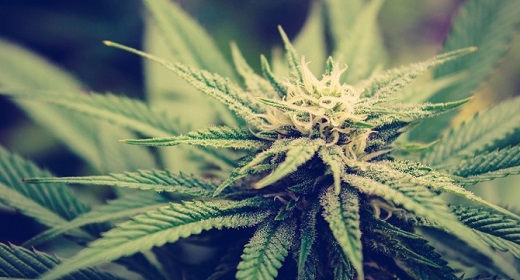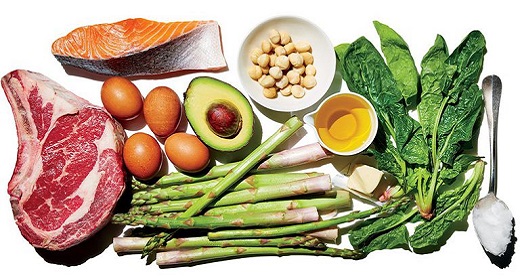by Shelley Levitt: The marijuana compound CBD promises to help with conditions ranging from poor sleep and anxiety to cancer and MS. Here’s how to cut through the hot air…
he biggest buzz in the smoking-hot marijuana industry isn’t about getting buzzed. Leave that to tetrahydrocannabinol, or THC, the psychoactive part of the marijuana plant. Rather it’s another compound in weed that’s attracting all the attention: CBD, short for cannabidiol.
While CBD won’t get you high, advocates claim it has vast therapeutic benefits, from soothing anxiety, curbing insomnia, and clearing up psoriasis to offering relief for serious health conditions like Alzheimer’s, cancer, and multiple sclerosis.
That’s spurred a flood of CBD products for sale: salves, sprays, lotions, lozenges, and just about anything that can be infused with cannabidiol (popcorn, chocolate, gumdrops, coffee, and cocktails, for starters).
The health claims got a boost in late June when the Food and Drug Administration approved Epidiolex, a CBD-derived drug, for the treatment of seizures in two rare and severe forms of childhood epilepsy. It’s the first-ever marijuana-based medication to win FDA approval, and the agency hinted that others might follow.
Eileen Konieczny
The FDA move is welcome news to longtime advocates of medical cannabis use like Eileen Konieczny, an oncology nurse and author of a new book Healing with CBD: How Cannabidiol Can Transform Your Health Without the High.
“It’s a real breakthrough,” she says. “It gives legitimacy to the idea that there’s actual medical use for CBD and that these claims aren’t a joke.”
Still, navigating the world of CBD can be overwhelming, both from a health standpoint and a legal one. Here are answers to some key questions to help you find your way.
What does CBD do?
Our body has a vast network of CBD cell receptors, collectively known as the endocannabinoid system, or ECS. These receptors are located in our brain and gut, throughout our central nervous system, and on the surface of our skin, impacting eating, sleeping, relaxing, immunity, and memory.
“The main benefit of CBD is that it acts as an anti-inflammatory agent,” Konieczny says. “We’re coming to understand that chronic inflammation underlies a wide range of diseases and conditions that may seem to be unrelated, like arthritis and lupus.”
She adds that CBD appears to have neuro-protective qualities, making it potentially helpful for traumatic brain or spinal-cord injuries and neurological disorders like MS, muscular dystrophy, and epilepsy.
How legit are the health claims for CBD?
Researchers are certainly trying to get to the bottom of this: Clinical trials are underway to test CBD as a potential therapy for anxiety, opioid addition, Parkinson’s disease, PTSD, pain, and more.
A study published in The American Journal of Psychiatry in December of last year reported that when CBD was added to a schizophrenia medication patients had fewer psychotic episodes.
Last March, researchers in Madrid reported that when CBD is used as a treatment for addiction it helps prevent relapses. The study participants, who all had a history of alcohol or cocaine abuse, happened to be rats.
That, says Jordan Tishler, a Harvard-trained physician, highlights a shortcoming of much of the CBD research. Tishler runs InhaleMD, a Boston-based practice with a cannabis specialty, and he recently founded the Association of Cannabis Specialists, which advocates for patient access to evidence-based cannabis medicine.
“When I look at the data that exists on CBD, there are studies that show it has impressive anti-inflammatory or anti-anxiety benefits,” he says. “But the reality is a great many of these studies were done on mice or rats.”
More than 90% of treatments that work in mice fail in humans, he says, adding that you often need a very high dose of CBD to get results. In many cases, Tishler believes, the benefits people experience are the result of the placebo effect.
Konieczny has a different view. “The overall effect of CBD is that it helps bring the body back into balance or homeostasis,” she says. “That can be subtle. You’re taking a CBD supplement, and you’re not really feeling any different until you realize that your aches and pains are gone and you’re sleeping better.”
Even Tishler concedes that, aside from the hit your wallet may take—the damage can run from $40 for a topical cream and $75 for vape oil to $300 for hemp oil drops and more—cannabidiol products are pretty much harmless.
Is CBD really legal?
That depends on where you live, what you buy, and, to some extent, how you interpret the law. “The legal issue is extremely murky,” says Lex Pelger, host of the Greener Grass podcast and science director of Bluebird Botanicals, a CBD seller based in Boulder, Colo.
Under federal law, marijuana is still outlawed as a Schedule 1 substance, like heroin, Ecstasy, and LSD. States, however, have different rules.
In nine states and the District of Columbia, marijuana is legal for both recreational and medical use. Most other states allow for some medical use; in several, just CBD is allowed, sometimes only under an approved pilot program.
Making things even more confusing, CBD can be sourced from marijuana or industrial hemp. While both are forms of the cannabis sativa plant, they’re bred differently. And CBD derived from hemp is pretty much exempt from marijuana laws.
The bottom line: In the most cannabis-friendly states like Maine, California, and Oregon, you can walk into your local dispensary and walk out with CBD edibles, topicals, vape pens, and doggy treats. In Arizona, Pennsylvania, Florida, and other medical-marijuana states, you can purchase CBD products with a prescription. And e-cannabis sites like Bluebird Botanicals that sell hemp-derived CBD products ship nationwide.
To find out the weed laws in your state, visit Marijuana Policy Project or ProCon.org.
What’s the best way to take CBD?
Because the ECS system is so widespread, CBD can deliver its benefits in a variety of ways, through a topical cream, as a quick-dissolving strip under your tongue, ingested in chocolates or other edibles, or inhaled through a vape pen.
When choosing a product, start with what you hope to achieve. If you’re looking for muscle relief, try a salve or oil. For an instant antidote to anxiety, vaping is the quickest way to get CBD into your bloodstream.
For an overall wellness boost, Konieczny suggests a daily supplement or a few drops of a tincture or extract in your morning smoothie or juice. Because everyone reacts to CBD differently, it can take some experimenting to find the dose and concentration that’s right for you. “Start low and go slow,” says Konieczny.
Are there any risks I should know of?
Be sure to talk to your physician or pharmacist about how CBD might interact with any other medications you’re taking. “We need to normalize these types of conversations,” Konieczny says, “so don’t be afraid to bring it up.”
Tip: CBD interacts with drugs in much the same way as grapefruit does. So if you’ve been told to avoid eating grapefruit while taking a medication, that’s a sign that unwanted interactions with CBD might also be a concern.
I’m sold. Where can I buy CBD?
A well-stocked marijuana dispensary—if you live in a state where one is accessible—is the best way to educate yourself about CBD products and find options that aren’t adulterated with lots of additives.
Online, look for a e-retailer, such as Bluebird Botanicals, that shares lab results testifying to purity and potency right on the website, or one that will make that information available on request, such as Palmetto Harmony and SatiMedUSA, both of which sell a wide range of CBD products.






















































